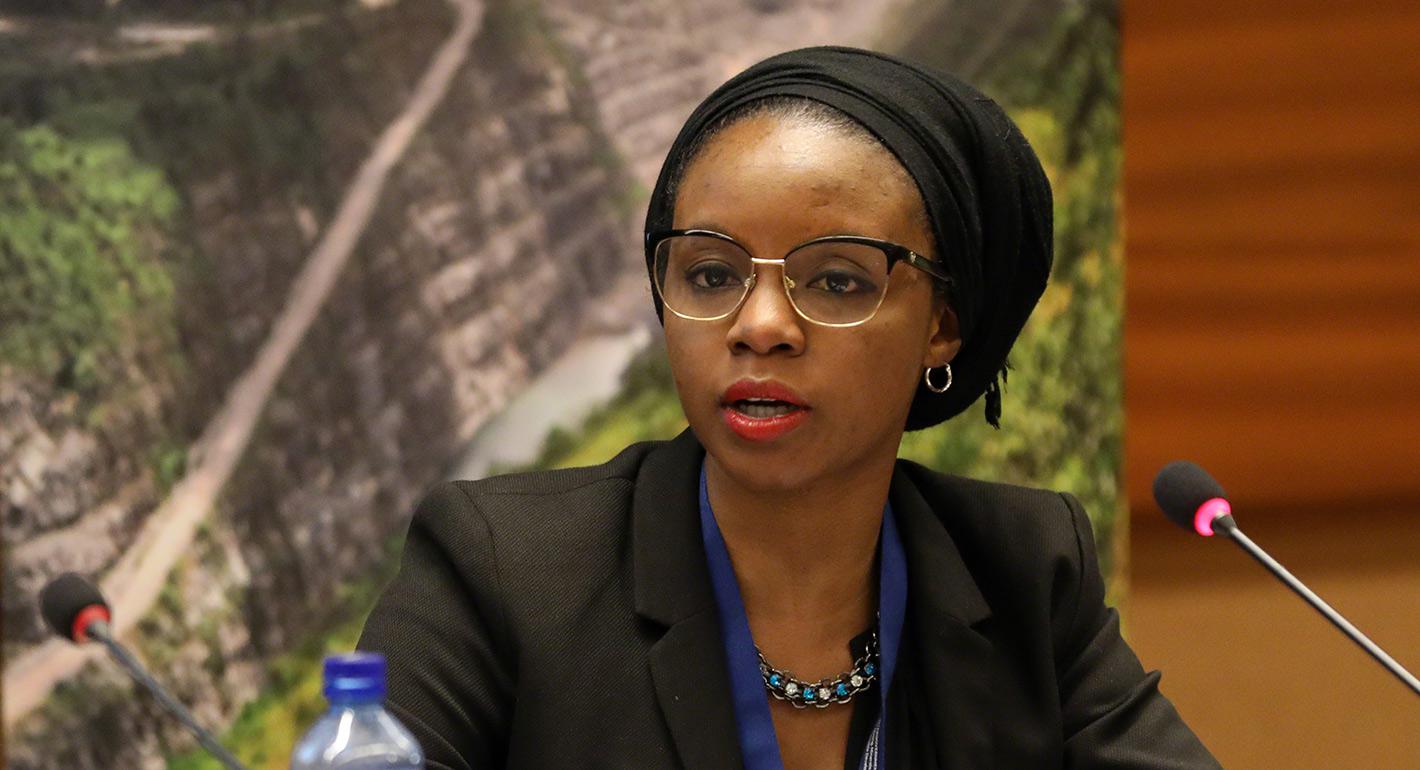{
"authors": [],
"type": "scholarSpotlight",
"centerAffiliationAll": "",
"centers": [
"Carnegie Endowment for International Peace"
],
"collections": [],
"englishNewsletterAll": "",
"nonEnglishNewsletterAll": "",
"primaryCenter": "Carnegie Endowment for International Peace",
"programAffiliation": "",
"programs": [],
"projects": [],
"regions": [],
"topics": []
}
Source: Getty
New Africa Program Director Spotlight: Zainab Usman
Experts need a new analytical lens to unpack the evolving domestic policy priorities and international economic relations of African countries as they strive to create productive opportunities for their people.
If you asked any policymaker in any African country what keeps them up at night, they will likely say jobs. It is a daunting task to create productive jobs for the millions of young people across the continent, identify economic opportunities to absorb the roughly 11 million people joining the labor force each year across Africa, and build the digital, energy, and transport infrastructure to facilitate the creation of these jobs and opportunities. In crucial ways, these considerations on how to generate prosperity for citizens shape domestic public policies and external economic relations from Angola to Zimbabwe and from Ethiopia to Senegal.
Throughout more than ten years working on public policy, first as a researcher in academia and later as a practitioner in the World Bank, I have seen how the need for jobs reflects age-old concerns as well as newer undercurrents of Africa’s rapid transformation. A global demographic shift is under way. With a median age of 19 years, Africa is the world’s youngest region, and its rapidly expanding population could exceed 2 billion people by 2050. While the continent contributes less than 4 percent of global carbon emissions, it is disproportionately affected by climate change. Floods, droughts, desertification, and other climate-related disasters are triggering migrations across the Sahel and the Horn of Africa, contributing to herder-farmer conflicts and disrupting labor and product markets. The impacts of the COVID-19 pandemic could further push tens of millions of people in Africa into poverty.
Still, there are upsides to these African transformations. As public sector specialist in the Office of the Africa Chief Economist of the World Bank, I co-led the Africa regional flagship study on The Future of Work in Africa: Harnessing the Potential of Digital Technologies for All. This study documented some of the ways in which new technologies allow the continent to “leapfrog” some legacy problems. Through digital financial services, for instance, Africa now has the world’s highest number of mobile money accounts, making crucial financial transactions, such as remittances from abroad, easier and more accessible. In 2019, the continent’s leaders defied all odds to create the world’s largest single market, the Africa Continental Free Trade Area. If progress is made in removing trade barriers and building industrial capacity, a more integrated Africa will be more prosperous and can rebalance its asymmetrical relations with the rest of the world. Africa’s economic relations are already shifting in profound ways from former colonial powers; China and India are now Africa’s largest bilateral trade partners.
Experts need a new analytical lens to unpack the evolving domestic policy priorities and international economic relations of African countries as they strive to create productive opportunities for their people. Far from being singularly defined as a humanitarian case of yesteryears, the African continent is an important global actor poised to shape the big questions of our times, from climate change to trade and the digital revolution. I am delighted to join my distinguished colleagues at Carnegie as the director of the Africa Program and to continue thinking through these big questions in collaboration with African policymakers and experts on the ground.
Photo credit: Photo by IISD/ENB | Mike Muzurakis
Carnegie does not take institutional positions on public policy issues; the views represented herein are those of the author(s) and do not necessarily reflect the views of Carnegie, its staff, or its trustees.